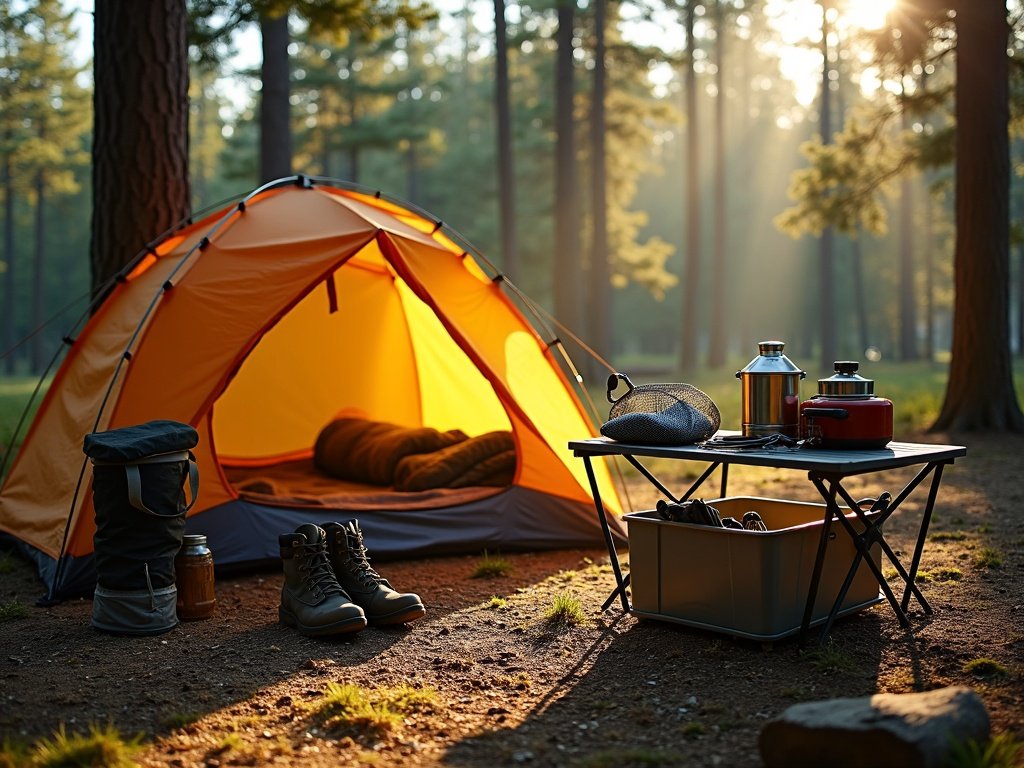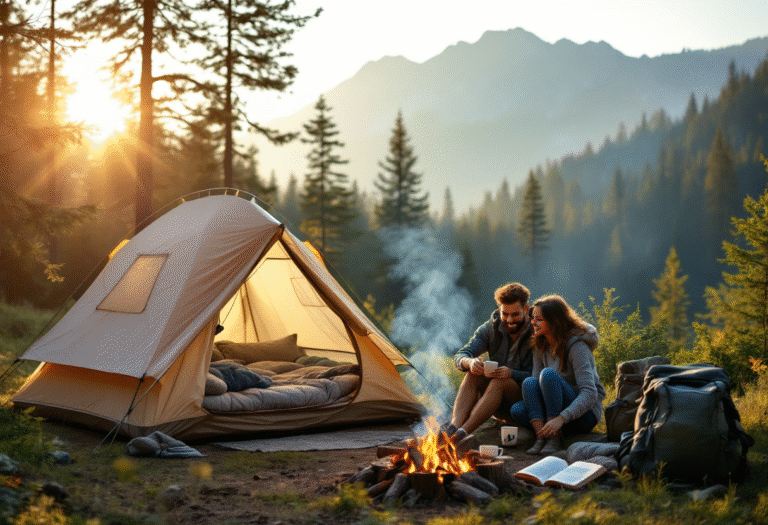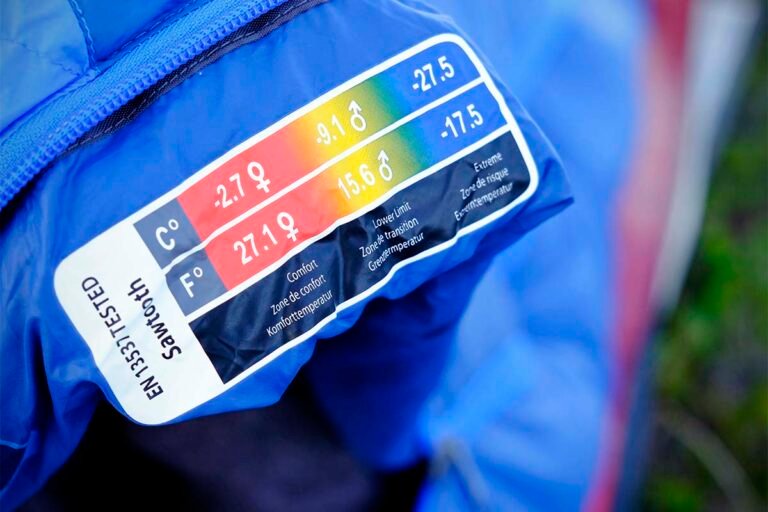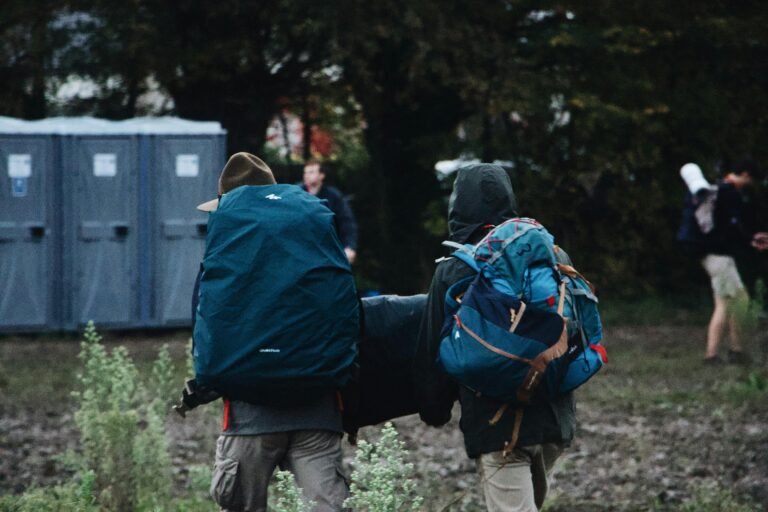Best Tips for Keeping Your Campsite Clean and Organized

Best Tips for Keeping Your Campsite Clean and Organized
There’s nothing quite like the serenity of waking up to the crisp morning air at your campsite—until you trip over scattered camping gear or step into last night’s leftovers. A disorganized campsite doesn’t just dampen your outdoor vibe; it invites unwanted pests and turns your wilderness escape into a chaotic mess. But fear not! With a few best tips for keeping your campsite clean, you can transform your temporary outdoor abode into a model of efficiency and tranquility.
Imagine a space where every item has its place, where trash is contained, and nature’s beauty remains undisturbed by clutter. Sound like a dream? It doesn’t have to be. Whether you’re a seasoned outdoors enthusiast or a first-time camper, mastering campsite organization is simpler than you think. From strategic camping gear storage to foolproof waste management hacks, this guide will arm you with the know-how to leave no trace—except for unforgettable memories. Ready to elevate your outdoor experience? Let’s dive in and reclaim the order in your wilderness haven.
The Benefits of an Organized Campsite
You might be wondering, “Is it really that important to organize my campsite?” The truth is, yes—it is! Here’s why:
- Safety: Tripping over scattered gear or leaving food out can lead to injuries or attract wildlife.
- Efficiency: When everything has its place, you’ll spend less time looking for stuff and more time enjoying nature.
- Stress-Free Camping: A tidy campsite just feels better. It adds to the sense of calm we all seek in the outdoors.
- Leave No Trace: Staying organized helps minimize your impact on the environment by reducing trash and preventing lost items.
Now that we’ve covered the “why,” let’s jump into the “how.”
1. Plan Ahead Before You Pack
Every successful camping trip starts at home. A smart packing strategy will save your sanity later—trust us on this one.
Use Packing Lists for Different Categories
Before tossing everything into a giant duffel bag, make packing lists by category. For example:
- Cooking supplies: Stove, fuel, utensils, pots, spices
- Sleeping gear: Tent, sleeping bag, pad, pillow
- Clothing: Layers, rain gear, extra socks
Keep a running checklist for each trip and tweak it depending on the season or destination.
Pack in Clear Bins or Zip Bags
Rather than throwing everything into random bags, use clear plastic bins or gallon-size zip-top bags to group items together. You’ll be able to see what’s inside and access it quickly. For smaller items like bug spray or sunscreen, a reusable toiletry kit works great.
Label Everything
If you’re car camping and using bins, slap a label on each one: “Camp Kitchen,” “First Aid,” “Fire Supplies,” etc. It saves loads of guesswork when setting up and finding gear later.
2. Master Your Campsite Layout
Think of your campsite like a mini home. Each area should have a specific purpose to avoid confusion and clutter. Here’s how to break it down:
Kitchen Area
Set up your kitchen station away from your sleeping area—ideally 50 to 200 feet, especially in bear country.
Designate an area for:
- Cooking: Try a folding table or pop-up shelf to prep food.
- Serving: Keep plates, cups, and utensils in a small bin or hanging organizer.
- Cleaning: Use a collapsible sink or bucket for washing dishes.
Want a helpful tip? Bring along a plastic tablecloth and clothespins to make any surface easier to clean—and more welcoming.
Sleeping Zone
Keep the tent area tidy and trash-free. That means no food, no toiletries, and definitely no shoes left inside. Track dirt outside with a small doormat or towel placed at the entrance.
Chill or Social Area
Set up a few camp chairs around a fire ring or under a shade tarp. This spot becomes the main gathering place for meals, games, and chats around the fire. Things like headlamps or card games can stay close by in a shared communal bin or hanging gear hammock.
3. Keep Things Clean Outdoors
Store Food Securely
One of the biggest campground issues? Food left out.
Not only does this attract unwanted critters, but it can also lead to safety problems. Keep food sealed and stored properly in one of the following:
- Bear-proof coolers (if required)
- Lockable food bins
- Car trunk (if permitted by park regulations)
Use reusable silicone bags or sturdy containers to keep things tidy and sealed. And don’t forget to store your trash the same way—pack it out!
Clean Up as You Go
The best way to keep your site tidy? Clean up little by little. Wipe down cooking surfaces immediately after use. Wash dishes after each meal instead of letting them pile up. It’s like the “don’t go to bed with a dirty kitchen” rule—just apply it outside.
Have a Trash Strategy
Bring designated trash and recycling bags—preferably ones that can close or seal. Hang them from a tree limb or tripod to keep critters out. One trick I learned? Keep an extra bag just for “dry” trash like wrappers so it doesn’t get soggy.
4. Organize Gear Onsite Like a Pro
Use Hanging Organizers or Gear Lofts
You know those over-the-door shoe organizers? They work wonders for camping. Hang one near the kitchen to store utensils, seasoning, headlamps, or even snacks. Inside your tent, a gear loft or mesh pocket helps keep essentials like glasses or flashlights off the ground and within reach.
Color-Code Your Gear
This is a fun trick, especially if you’re camping with others. Use color-coded dry bags or tags for each family member’s items—blue for dad, green for kids, red for mom. It’s way easier than digging through a massive pile of stuff.
Create a “Welcome Station”
Set up a small table or crate near the site entrance to store communal essentials like sunscreen, bug spray, hand sanitizer, and maps. Everyone knows where to find it, and you don’t have to hear “Where’s the insect repellent?” twenty times a day.
5. Involve Everyone in the Process
Give Everyone a Job
Camping is more fun when everyone pitches in. Give kids (or adults!) responsibilities like filling water bottles, collecting firewood, or organizing the first-aid kit. Not only does it keep the site clean, but it also builds teamwork and makes everyone feel involved.
Daily End-of-Day Reset
At sunset each day, do a mini reset. Put items back in their bins. Check for trash or leftover food. Rinse out dishes. It only takes 10 minutes and makes the next day so much smoother.
6. Pack Up Smart
Have a “Dirty Gear” Bag
One of my must-bring items is a dedicated bin or duffel just for dirty or wet items. Whether it’s muddy boots, used kitchen towels, or clothes that smell like campfire, tossing them into a separate container keeps everything else clean.
Keep Cleanup Supplies Handy
Pack a few essentials in an easy-access area for your last day:
- Trash and recycling bags
- Wipes or soap
- Multi-purpose towel or sponge
Wipe down tables, put out any embers completely, and double-check your surroundings for anything you may have missed. Follow the Leave No Trace principle by leaving your campsite cleaner than you found it.
A Few Bonus Camping Organization Hacks
- Bring extra carabiners. Clip them to tarps, towels, gear hammocks, or even water bottles.
- Use stackable bins to save car space during transport and create usable “shelves” at camp.
- A headlamp strapped to a gallon jug of water creates an instant lantern.
- Pack duct tape—you’ll use it to fix everything from torn tarps to broken bin lids.
Final Thoughts: Keep It Simple and Stress-Free
There’s no one “right” way to organize a campsite, but with a little planning and these tips, you’re well on your way to a cleaner, safer, and more enjoyable experience in the wild.
At the end of the day, the goal is simple: make your life easier so you can spend more time doing what you came for—hiking, relaxing, staring at the stars, or just eating s’mores with friends and family.
So, are you ready to hit the great outdoors with less stress and less mess? Grab your bin, roll up your gear, and start organizing your next epic campsite adventure!




[…] Best Tips for Keeping Your Campsite Clean and Organized […]
[…] Best Tips for Keeping Your Campsite Clean and Organized […]